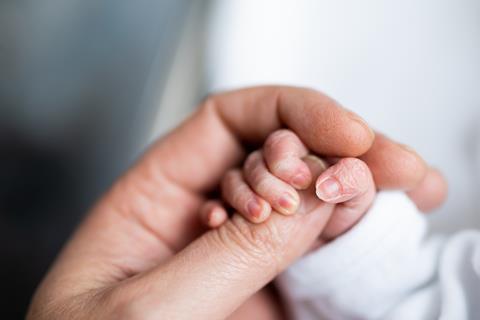Parents of children born through surrogacy will become the child’s legal parents at birth under reforms proposed by the Law Commission to replace laws ‘not fit for purpose’.
After consulting on surrogacy reforms in 2019, the Law Commission of England and Wales and the Scottish Law Commission published their final report detailing a robust new system to govern surrogacy.
Family law commissioner Professor Nick Hopkins said surrogacy has been increasingly used in recent years to form families ‘but our decades-old laws are outdated and not fit for purpose’.
Under the current law, the legal mother of the child is the surrogate and the father or second parent is usually either the surrogate’s spouse or civil partner. An intended parent can use the Human Fertilisation and Embryology Act 2008 to become a second parent. However, often at the time of birth, neither, or at most only one, of the intended parents will be the legal parent.
Since 1994 intended parents can obtain a parental order, which transfers legal parental status from the surrogate. However, intended parents cannot apply for a parental order until after the child is born. The court cannot make a parental order less than six weeks after the child’s birth as the order requires the surrogate’s consent.
The commissions recommend a new pathway to legal parenthood for domestic surrogacy arrangements that would allow the intended parents to be the legal parents from birth.

Other recommendations include a new surrogacy register to allow those born through surrogacy to discover information about their origins.
Hopkins said: ‘Our reforms will ensure that surrogacy arrangements are well-regulated, with support and security built into the system from the very beginning. By introducing a new regulatory route with greater legal certainty, transparency and safeguards against exploitation, we can ensure that we have an effective regime for surrogacy agreements that places the interests of the child at their heart.’
Natalie Sutherland, a partner specialising in surrogacy and fertility law at Burgess Mee Family Law, said the proposals were nothing short of revolutionary.
Sutherland said: ‘Creating a new pathway that front loads the checks and balances prior to conception means that the process after birth is minimal, with the intended parents being the legal parents at birth, enabling the intended parents and their baby, and the surrogate, to move forward with their lives as soon as the baby is born, and removes the legal limbo that surrogate babies are currently born into.’
On the surrogate’s spouse or partner no longer being considered the second legal parent, Sutherland said: 'Whilst it is understandable that the person who gives birth to the child would need to provide consent, the surrogate’s spouse is only the legal father by virtue of the marriage on the basis of the presumption of legitimacy, which is essentially a legal fiction.'
Connie Atkinson, family partner at Kingsley Napley, said the creation of regulated surrogacy organisations to assist with arrangements and a surrogacy register are important steps forward.
‘Currently, while we know how many parental orders are made each year, this is certainly not representative of the number of children born via a surrogate as not everyone applies for a parental order,’ Atkinson said.
Jade Quirke, senior associate in the children and education team at Russell-Cooke, said recommendations on the 'thorny issue' of payments to surrogates are robust and firmer than current practices.
'The proposals make clear that surrogates should only be paid expenses from a list of specified categories rather than expenses generally and there will be a requirement for the intended parents to sign a statutory declaration after the birth confirming the expenses they have paid. If they do not it will constitute a criminal offence,' Quirke said.
The Law Commission said it now awaits an interim response from the government.



























5 Readers' comments